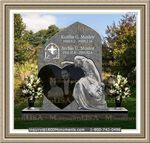|
What To Learn When Learning Jewish Traditions For Funeral
It is a Jewish funeral traditions not to leave the deceased unattended. The family or those conducting the funeral services must provide a Shomer, or watchmen, who will sit with the body until the burial. The very first person to be called upon a death is the rabbi, who decides upon a time for funeral proceedings. Funerals are typically held in the temple or synagogue, although many Jewish families are now opting for a graveside service only.
Unlike other funeral traditions, it is a Jewish custom to not view the body after death; it is seen as disrespectful since the deceased cannot look back. For this reason, Jewish funerals are typically closed casket.
Embalming, a process used for sanitation and temporary preservation, is avoided unless it is required by local law. The sacred society, or the Chevra Kadisha usually take on the role of preparing the body. This is a group of pious Jewish followers who perform the Jewish Taharah, or purification.
They bathe the body and dress it in the Tachrichim, which is the traditional burial garment. It is a simple shroud without any pockets. This symbolizes to all that the deceased does not take any material possessions with them when they leave this world and that God will judge them based on their merits and deeds alone.
It is tradition that the casket be of wood only with no metal or other adornments. It is also customary to not have floral arrangements at the funeral as these are seen as unnecessary.
The funeral typically takes between 20 and 30 minutes in which the rabbi with conduct a reading of the Psalms, other chosen Scripture readings, and a reading of the eulogy. Prior to or following the service, family and other mourners conduct the K'riah, or rendering of the garment, where they tear their clothes or place a black ribbon on their clothes. This shows others that they are in mourning for the deceased. These Jewish funeral traditions have been somewhat modified over time, but are generally followed by most Jews.
|
|



























